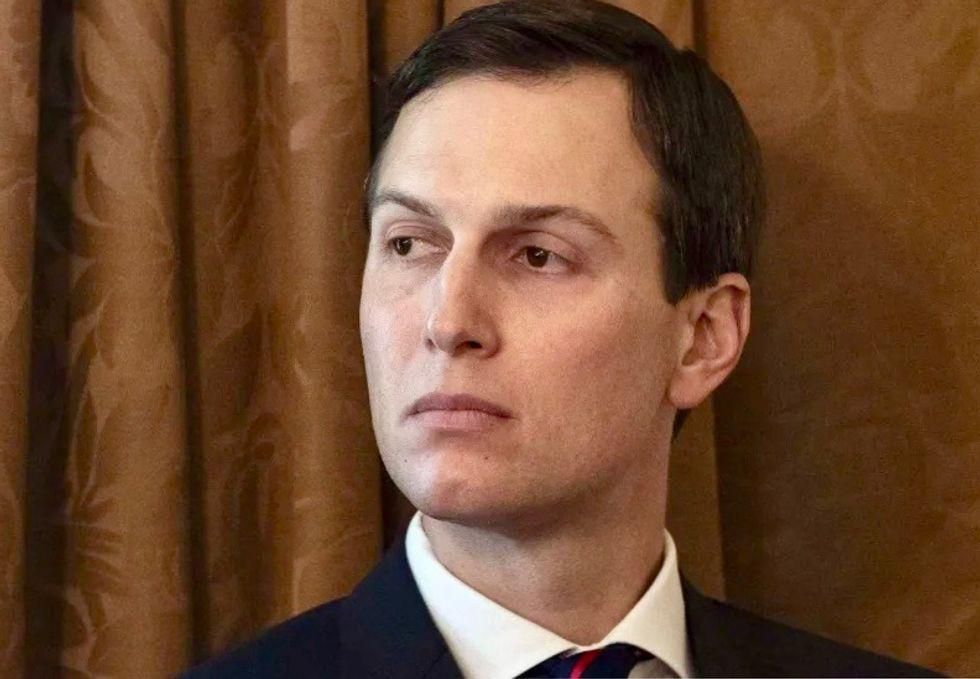According to Forbes, former President Donald Trump's son-in-law Jared Kushner managed to get his new book onto the best-seller list — just days after a massive expenditure on "books" taken out by a joint fundraising committee aligned with the Trump family.
"'Breaking History: A White House Memoir' hit book shelves on Aug. 23. Two weeks later, the Save America Joint Fundraising Committee, which raises money for two Trump PACs, paid retailer Books-A-Million $131,000 for 'collateral:books,' according to a campaign filing made Saturday with the Federal Election Commission," reported Zach Everson. "On Sept. 11, four days after that bulk purchase, Kushner’s book appeared for the first time on the New York Times best sellers list. On Sept. 22, Save America purchased another $27,000 worth of books. 'Breaking History' spent five weeks on the best-seller list before falling off."
"Spokespeople for Save America did not immediately respond to questions about whether the book purchases covered Kushner’s memoir. But it seems likely that it did," said the report. "Save America Joint Fundraising Committee is currently offering copies of Kusher’s book in exchange for donations of $75 or more."
As Forbes noted last year, the practice of political organizations using political donations to buy up a political figure's books and marking them up for fundraising giveaways is a common arrangement — indeed, several senators in both parties, from Sen. Elizabeth Warren (D-MA) to Sen. Tom Cotton (R-AR), have used their own campaigns to buy their own books — but there are some legal limits designed to prevent them from pocketing the profit directly.
READ MORE: Marjorie Taylor Greene serves notice to Kevin McCarthy that he needs to hand her 'a lot of power'
"Lawmakers are allowed to dip into their campaign coffers to boost book sales, so long as those sales do not increase their personal royalties," noted that report. "'Both the House and Senate place dollar limits on outside employment, but there is an exception for publishing contracts, which are pre-approved by the ethics committees,' said Brett Kappel, an attorney specializing in campaign finance at Harmon, Curran, Spielberg & Eisenberg. 'The FEC has issued a long series of advisory opinions allowing members to use campaign funds to buy copies of their own books at a discount from the publisher, provided that the royalties they would normally receive on those sales are given to charity.'"
But even when these rules are followed, the report noted, it can still ultimately lead to a political figure pocketing more money from their book deal than they would have otherwise — because the publisher itself makes more money from the self-dealing, which means the publisher may offer a more generous contract and base royalties on the books as a whole, knowing they don't have to organically sell the entire run of books.
Leave a Comment
Related Post
